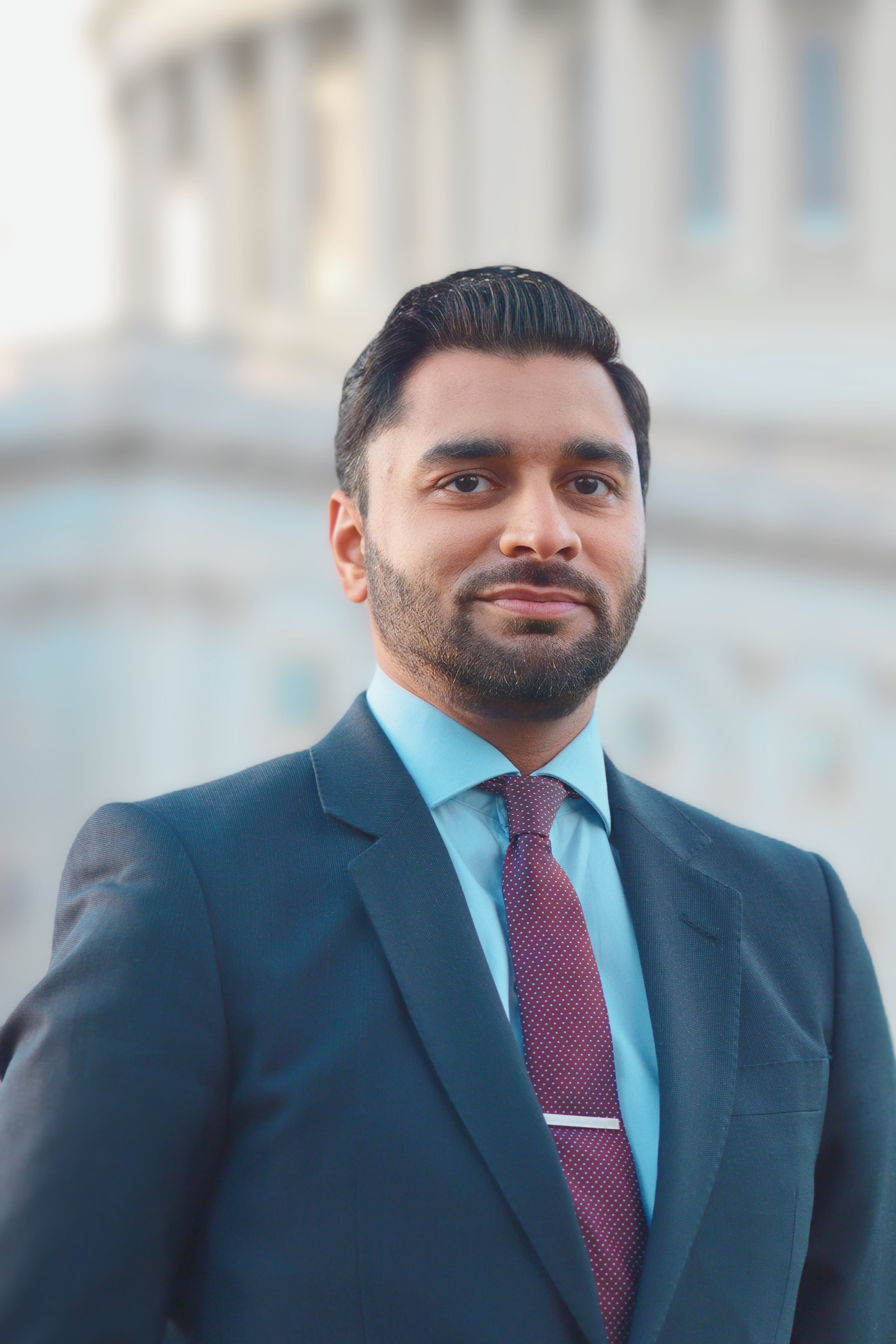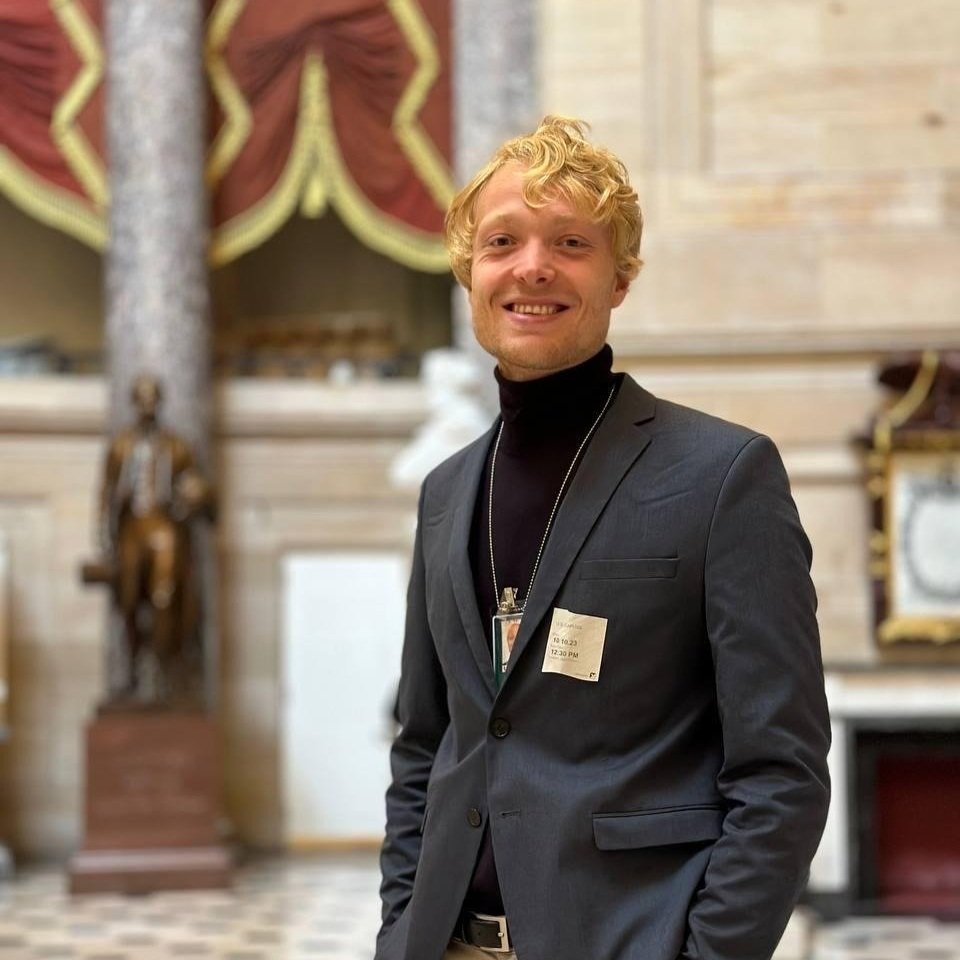Media Contact:
Chelsea Hedquist
press@lantosfoundation.org
Four New Hampshire High School Seniors Receive $15,000 in Scholarship Funds
CONCORD, NH (May 2, 2024) — The Lantos Foundation for Human Rights & Justice today announced that Abhinav Avvaru of Nashua High School and Oliver Andrews of Kearsarge Regional High School will receive the first-place awards for the annual Activist Artist Scholarship competition. Each will receive a $5,000 scholarship to be paid to the college or university they plan to attend in the fall.
The competition encourages students to explore how art can impact the human rights movement. This year’s competition once again offered applicants the chance to submit to two distinct categories: The essay category challenges applicants to examine the influence of a particular “Activist Artist” and show how that artist used their medium to inform and inspire during their lifetime or beyond; in the second category, applicants have the option to submit their own original piece of activist art, along with a “museum plaque” describing their work. This year’s submissions focused on a range of human rights issues, including freedom of speech, oppressive authoritarian regimes, racism, unjust incarceration, the war in Ukraine, gun violence, and more.
First place essay winner Abhinav Avvaru focused his essay on the art installations of Chinese activist artist Ai WeiWei. He writes, “Within China, where dissent is often met with harsh repression, Ai Weiwei's defiance serves as a symbol of resistance and resilience. His willingness to confront taboo subjects and expose government corruption and human rights abuses inspires others to speak out against injustice, despite the risks. Through his art, Ai Weiwei provides a platform for dissenting voices, amplifying their message and fostering solidarity among those who strive for a more open and just society.”
Oliver Andrews was awarded first place in the original artwork category for his violin composition titled “Against Despair,” which he dedicates to all whose freedom has been crushed by the Putin regime in Russia. He explains that the piece “attempts to express the grief at witnessing Russia’s ongoing oppression and violence as well as concern at the spread of these same oppressive tendencies across other nations.” He goes on to say, “Being willing to name the challenges of our current age and recognize with clear eyes the autocratic aspirations of leaders like Putin is itself a source of hope. Silence is the handmaiden of all human rights abuses; despots cultivate it, depend on it, to tighten their strangleholds on their people. Art, and music in particular, is one of the most powerful ways to shatter this silence. ‘Against Despair’ is a small attempt to keep the silence from growing.”
Two scholarships of $2,500 each were awarded to the runners-up: Ryder Dutton of Belmont High School, whose essay focuses on quilts created by wrongfully convicted former death row inmate Gary Tyler; and Michaela Horan of Londonderry Senior High School, who composed an original song that explores the power of rising up in peaceful protest.
Dr. Katrina Lantos Swett, President of the Lantos Foundation, congratulated the four scholarship winners and said, “Since we launched the Activist Artist Scholarship competition in 2021, we have been amazed and impressed each year by the skill and sophistication of the submissions. This year is no different. The four scholarship winners have truly grasped the meaning of ‘activist art’ and have demonstrated this understanding beautifully through both the written word and music. We hope the scholarships will allow these talented students to elevate their skills and ideas as they continue their education, as well as inspire them to continue standing up for human rights around the world.”
Funding for the scholarships is generously provided through a grant from Bank of New Hampshire. “The partnership between Bank of New Hampshire and the Lantos Foundation embodies a shared commitment to nurturing the intersection of art and human rights advocacy,” said Tiffany Baert, VP – Marketing Officer for Bank of New Hampshire. “Through the Activist Artist Scholarship, we are able to support the creative endeavors of young individuals passionate about making a difference in the world. This initiative not only honors the legacy of Congressman Tom Lantos but also empowers a new generation to continue his mission of promoting human rights through artistic expression.”
The winners were selected by a panel of judges from the New Hampshire arts and education communities, and beyond, with a diverse range of experience and perspectives. This year’s judges included: New Hampshire artist and gallery owner Pam Tarbell, Lantos Foundation Board of Trustees Treasurer Ambassador Richard Swett, retired Lantos Foundation staff member Jill Hadaway, Bank of New Hampshire’s Miranda Augustine, digital media specialist Isaac Campbell, Lantos Foundation President Dr. Katrina Lantos Swett, recent Duke University graduate and former Lantos Foundation intern Daniel Wolf, and Tufts University student and former Lantos Foundation intern Leyla Mandel.
This year, the following students have also been recognized as honorable mentions: Aaralyn Evans of Woodsville High School, Isabella Cannon of Bow High School, Lyra Saults who is homeschooled in Bristol, and Bozen Hrynyk of Manchester Central High School.
Following graduation, the scholarship winners and honorable mentions will be continuing their studies at a range of impressive colleges and universities, including Belmont University, Columbia University, Amherst college, and Maine College of Art and Design. The scholarship and honorable mention recipients will be honored at a reception hosted by Bank of New Hampshire on May 7 at 5:30pm. Members of the press who wish to attend the event should RSVP to press@lantosfoundation.org.
The Activist Artist Scholarship program falls within the Lantos Foundation’s “Global Citizenship” area of work. The Foundation recognizes the powerful, yet often overlooked, role that artists play in the human rights movement. Through the Activist Artist Scholarship and other programs, including the Front Line Fund grant program, the Foundation seeks to encourage, support and elevate the work of artists who use their mediums to advocate for important causes.
To learn more about the Foundation’s Activist Artist work and to stay updated on future awards, visit: https://www.lantosfoundation.org/activist-artist
###
About the Lantos Foundation for Human Rights & Justice: The Lantos Foundation was established in 2008 to carry forward the legacy of Congressman Tom Lantos, the only Holocaust survivor ever elected to the U.S. Congress and a leading human rights champion. Based in Concord, NH, the Foundation works with a range of partners and often in cooperation with the U.S. Government on issues that span the globe. The Foundation’s key areas of focus include human rights issues related to religious freedom, rule of law, internet freedom and activist art. The Foundation also administers the Lantos Congressional Fellows Program, supports human rights advocates, activists and artists through its Front Line Fund grant program, and awards the annual Lantos Human Rights Prize to honor and bring attention to heroes of the human rights movement. Past recipients of the Prize include His Holiness the Dalai Lama, Professor Elie Wiesel, Iraqi Parliamentarian Vian Dakhil, “Hotel Rwanda” hero Paul Rusesabagina, Hong Kong Democracy activist Joshua Wong, NBA athlete turned activist Enes Kanter Freedom, among others.









